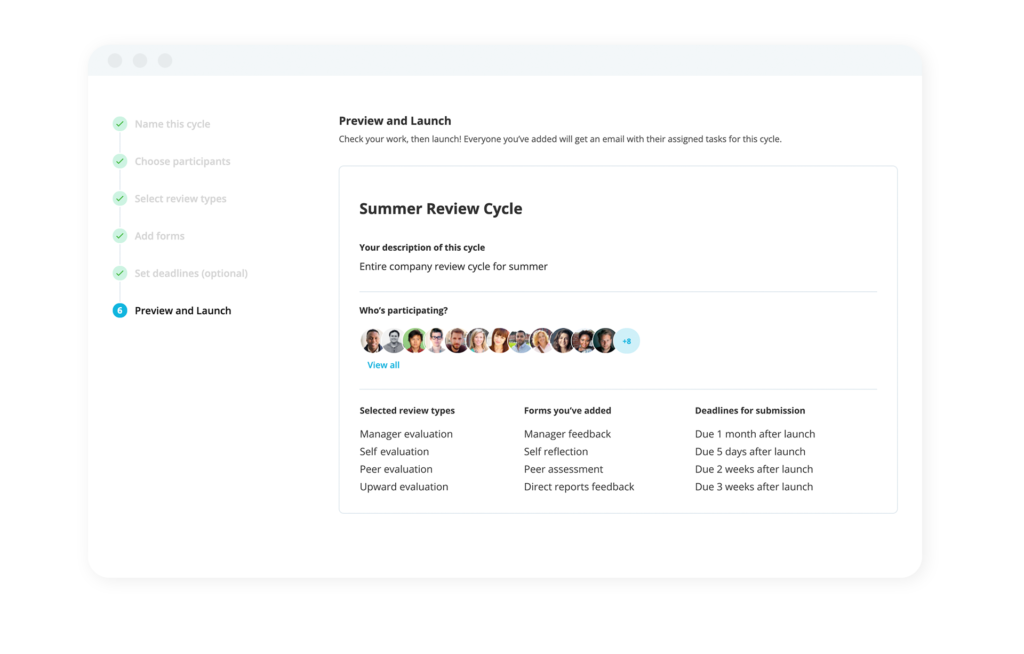
HR Business Plan Template
Unlock executive buy-in with our HR business plan template.
Get the templateWhat is CIPD and How Does It Benefit HR Managers?

In this article, we’ll provide a comprehensive overview of the CIPD. We’ll define what it is, how to qualify for it and how it benefits HR managers.
Key Facts
A CIPD qualification is recognised across multiple industries within the UK.
Each qualification level is divided into three categories of coursework: Award, Certificate and Diploma.
Completing the Advanced Diploma qualification course makes you eligible for Chartered Membership or Chartered Fellowship within the CIPD.
CIPD: Meaning
The Chartered Institute of Personnel Development (CIPD) is the main professional body that governs HR and people development. It is globally recognised for setting behavioural standards for HR professionals. A CIPD qualification can help advance someone’s career in the people’s profession.
The CIPD organisation has been active for more than 100 years, with around 150,000 members worldwide.
CIPD: Qualification Levels
There are three levels to the CIPD qualification programme: Foundation, Intermediate and Advanced. Each level involves an increasingly more in-depth instruction on HR practices and necessary skills. Within each level there are three divisions: Award, Certificate and Diploma.
The level you aim for further determines the complexity of the course and the number of hours needed to complete it.
1. Foundation Qualifications
The Foundation qualification programme covers essential and practical information about people development. As the name implies, it provides a broad blanket of knowledge that helps build a firm foundation for HR professionals to further develop their skills.
The typical things you’ll learn in this course include the principles of analytics, desired behaviours in people professionals, employment law and more.
You’ll earn an Award at this level after 20 to 120 hours of study, a Certificate after 280 hours and a Diploma after 370 hours.
Who It’s Best For: The Foundation level qualification is best for people just starting in the HR profession. Appropriate job titles include HR Assistant and Organisational Development Officer.
How It Benefits HR Professionals: This level of qualification helps people understand what goes on in most organisations and what their role in it will be. It kickstarts their career in the people profession and gives them a solid base from which they can continue to grow.
2. Intermediate Qualifications
The Intermediate qualification programme is set at an undergraduate level of study and expands on the principles taught in the Foundation programme. Courses within this programme will instruct you on talent management, organisational practice and more.
At the same time, it’ll help build up your soft skills like critical thinking and problem-solving to help you better handle the responsibilities of your role.
You’ll earn an Award at this level after 30 to 120 hours of study for HR practices and 60 to 120 hours for learning and development. Earning a Certificate requires 320 hours of study in HR management and 300 hours in learning and development. Finally, earning a Diploma takes 440 hours of study in HR management, 900 hours in applied HR, and 420 hours in learning and development.
Who It’s Best For: The Intermediate qualification programme is best for HR professionals who aspire to enter management or those seeking to take the next step in their careers.
How It Benefits HR Professionals: This training programme gives you skills beyond what the Foundation level could, helping you stand out while performing your typical responsibilities.
3. Advanced Qualifications
The Advanced qualification programme courses are equivalent to postgraduate coursework. The instruction in this programme focuses on specific areas of talent management to help specialise or consult in a particular field. The complexity and depth of the material also mean that this level of qualification is best suited for people with operational, tactical or strategic responsibility.
You’ll earn an Award at this rank with 150 hours of study in human resources. Earning a Certificate takes 600 hours of study in human resources, while earning a Diploma takes 1,200 hours of study in HR management and 1,200 hours in HR Development.
Who It’s Best For: The Advanced qualification programme is for HR professionals who want to advance to a senior position or would like to develop new HR policies.
How It Benefits HR Professionals: This training programme can give you in-depth insight into high-level business research and employment relations concepts. In addition, it can help prepare you for HR leadership roles down the line.
Give Potential Room To Grow With Personio

Automate your performance cycles to open up time for job enrichment with Personio today.
Find Out More
How To Become a CIPD Member
The Chartered Institute of Personnel Development offers three levels of professional membership: Associate, Chartered and Chartered Fellow. There’s also a fourth level called student membership which you’re eligible to join if you’re enrolled in a CIPD qualification programme. Once you’ve successfully earned a CIPD Certificate or Diploma, you’ll be automatically upgraded to an Associate member.
Upgrading to Chartered Membership requires completing the Advanced qualification course at the Diploma level and having at least one year of experience in Charter-level HR Work. After earning an Advanced diploma, you can also apply for the Chartered Fellow status if you have at least one year of experience with Chartered Fellow work.
CIPD Fees
Note that these fees only cover the costs if you’re applying to CIPD through earning a qualification. Other membership routes will have different expenses.
Student Member Fees. Individual study centres determine the Qualification fee for student members. The Joining and Student Membership fees come to £90 if you enrol within six months or £189 if you enrol within 18.
Associate Member Fees. This membership costs the same as the Student Membership because it is a free upgrade upon earning a Certificate or Diploma.
Chartered Member Fees. Individual study centres determine the Qualification fee. The Joining fee and Upgrade fees come to £150 to £210 if you enrol within six or £249 to £309 if you enrol within 18 months.
Chartered Fellow Fees. Again, the individual study centres determine the Qualification fee. The Joining fee and Upgrade fees come to £340 if you enrol within six or £439 if you enrol within 18 months.
Benefits of Becoming a CIPD Member for HR Professionals
Joining the CIPD has several advantages, one of the most important being the cross-industry recognition of your certification. HR representatives appear in nearly every business, so your skills will almost always be in high demand. This certification signals to potential employers that you’re well trained and highly qualified to take on the job.
Additionally, with more than 150,000 members already enrolled within the CIPD, taking one of its qualification courses is an excellent way to grow your network.
Advance Your HR Career with Personio
Earning a CIPD qualification is time-consuming, but the courses are often flexible enough to schedule work around your studies. Experience is required if you want to advance with the CIPD organisation, and Personio can help put your best foot forward regardless of the workplace. With its various features that help you onboard employees, track job performance and analyse essential data, you’ll be able to put everything you learned into practice easily.
Book your free demo to learn how Personio can help you manage your workplace.
Frequently Asked Questions About CIPD Qualifications
What Is the Meaning of CIPD Qualification?
A CIPD qualification represents a standard of skill and behaviour for HR professionals and other individuals in the people development profession. It’s recognised across almost all UK industries and can substantially increase someone’s job prospects.
What Does CIPD Stand For?
CIPD stands for Chartered Institute of Personnel Development, and it’s the organisation that sets professional standards for HR representatives.
What Are the Levels of CIPD Qualifications?
The Levels of CIPD Qualifications are:
Foundation. Teaches the basics of HR management to new students to build a solid base on which to grow.
Intermediate. Builds off of what’s taught at the Foundation level and prepares you for the responsibilities of HR Management or other higher-level positions.
Advanced. Helps you specialise in a particular area within people management while preparing you for the most senior HR roles. Additionally, this is one of the milestones needed to become eligible for Chartered CIPD membership.
Which Are the 3 Levels of CIPD Membership?
The three levels of CIPD membership are Associate Member, Chartered Member and Chartered Fellow. Joining the CIPD while pursuing qualifications means starting as a Student Member and automatically upgrading to Associate Membership once you’ve earned a Certificate or Diploma.
Disclaimer
We would like to inform you that the contents of our website (including any legal contributions) are for non-binding informational purposes only and does not in any way constitute legal advice. The content of this information cannot and is not intended to replace individual and binding legal advice from e.g. a lawyer that addresses your specific situation. In this respect, all information provided is without guarantee of correctness, completeness and up-to-dateness.
